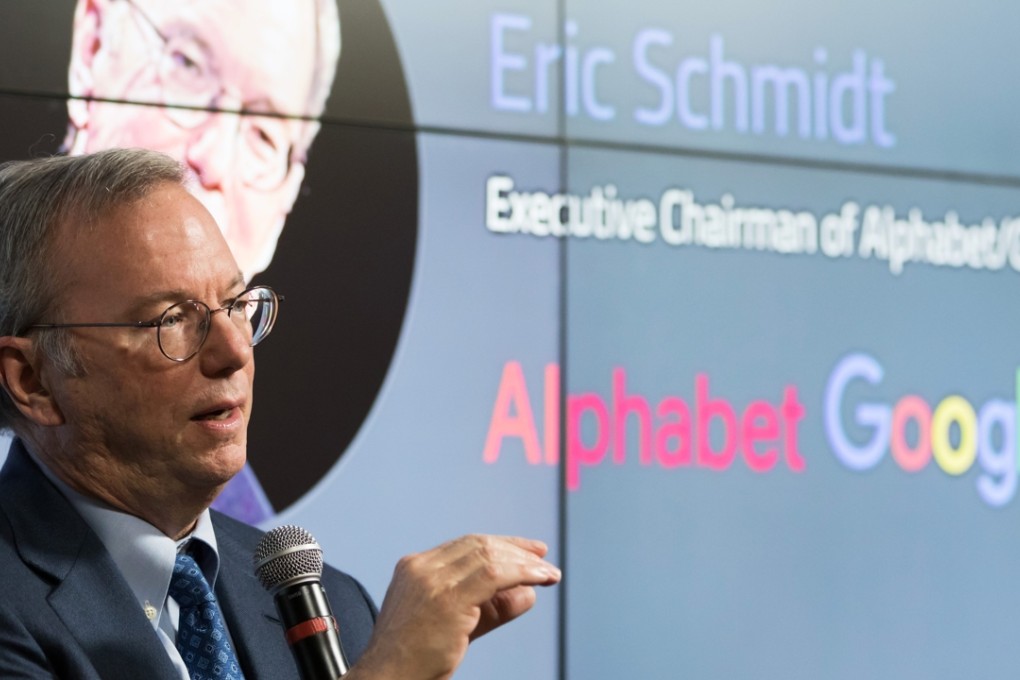Google ‘never left’ China, Alphabet’s Eric Schmidt says at tech conference in Beijing
Hails level of entrepreneurialism in Chinese capital, Shanghai as ‘close to the highest in the world’; describes new smartphone partner Huawei as 'extraordinary'

Google maintains strong links with China despite its services having for years been blocked on the mainland, Alphabet Inc. executive chairman Eric Schmidt said on Monday.
Moreover, the company is in constant dialogue with Beijing as it seeks to better serve the country, he added.
“[Google] has lots of partners [in China] and we have offices in Greater China - in Taiwan and Hong Kong,” he said at the TechCrunch Beijing conference.
"The interesting thing is that Google never left China," he said.
He added that Google hopes to expand its presence in China, which has blocked Google’s services in the country, and that it is in regular communication with the Chinese government.
Google ceased search engine operations on the mainland in 2010 when it went head-to-head with Beijing over censorship of search results and a cyberattack on Gmail users.